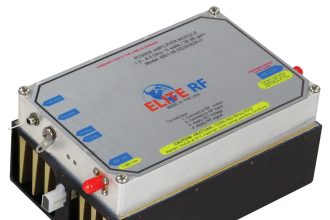New Zealand’s diverse climate, ranging from humid coastal regions to icy alpine areas, can affect your vehicle in so many ways. While most drivers keep an eye on fuel efficiency and routine servicing, many overlook how shifting temperatures and moisture levels quietly wear down vital components. The combination of seasonal extremes means car parts in New Zealand don’t just age but battle the elements daily. If you want to keep your vehicle in top shape and avoid costly surprises, understanding these weather-related effects is key.
How Tyres Perform in Hot and Cold Weather
Tyres might seem like a set-it-and-forget-it part of your car, but they are more sensitive to temperature than most people realise. Cold weather makes rubber contract and stiffen, reducing traction and making braking less effective. On the flip side, hot asphalt softens the rubber, leading to accelerated wear and an increased risk of blowouts, especially at high speeds.
Tyre pressure also fluctuates with temperature changes, affecting both safety and fuel efficiency. Under-inflated tyres increase rolling resistance, while over-inflated ones reduce grip. A quick pressure check every few weeks, particularly when the seasons shift, can save you from unexpected issues on the road.
Windscreen Wipers and Visibility Challenges
With frequent downpours and the occasional frost, a reliable set of windscreen wipers is essential for safe driving. However, exposure to extreme temperatures weakens the rubber blades over time. Hot summers dry them out and cause cracking, while icy conditions make them brittle and ineffective.
If your wipers leave streaks or make a chattering noise, it is time for a replacement. To get the most life out of them, park in the shade during summer and avoid using them to scrape ice off the windscreen in winter. Adding a winter-specific washer fluid can also help prevent freezing on those especially cold mornings.
Battery Performance and Extreme Temperatures
Few things are more frustrating than turning the key on a cold morning only to be met with silence. Winter’s low temperatures slow down the chemical reactions inside a car battery, making it harder to generate enough power to start the engine. But summer isn’t exactly a friend to batteries either. Scorching heat speeds up internal chemical processes, leading to faster fluid evaporation and corrosion.
To stay ahead of the seasons, regular battery checks are a must. Before winter hits, ensure your battery is fully charged and the terminals are free from corrosion. Likewise, before summer’s peak, keep an eye out for any swelling or leakage.
Engine Cooling System and Seasonal Strain
Your car’s cooling system is a silent workhorse, ensuring the engine does not overheat in summer or freeze in winter. The coolant, or antifreeze, plays an important role in regulating engine temperature, but it doesn’t last forever. Over time, it degrades, reducing its ability to protect against extreme temperatures and corrosion.
Ignoring coolant levels can lead to overheating, leaks, or even engine failure. Checking coolant levels regularly and replacing it as per the manufacturer’s recommendations is a small but crucial step in preventing expensive repairs down the road.
Suspension and Road Conditions
New Zealand’s roads can be unforgiving, especially after heavy rain or frost. Potholes form quickly, and uneven surfaces put extra strain on your car’s suspension. Over time, shocks and struts wear out, leading to a rougher ride and reduced handling.
If your car starts to feel overly bouncy, leans when turning, or makes odd noises when going over bumps, you should consider checking the shocks.
Final Thoughts
Weather might seem like just another part of driving, but it has a major impact on your vehicle’s performance and longevity. From battery drain in winter to tyre wear in summer, New Zealand’s climate keeps car owners on their toes. The best way to stay ahead? Regular maintenance, seasonal adjustments, and investing in quality parts suited for local conditions.















